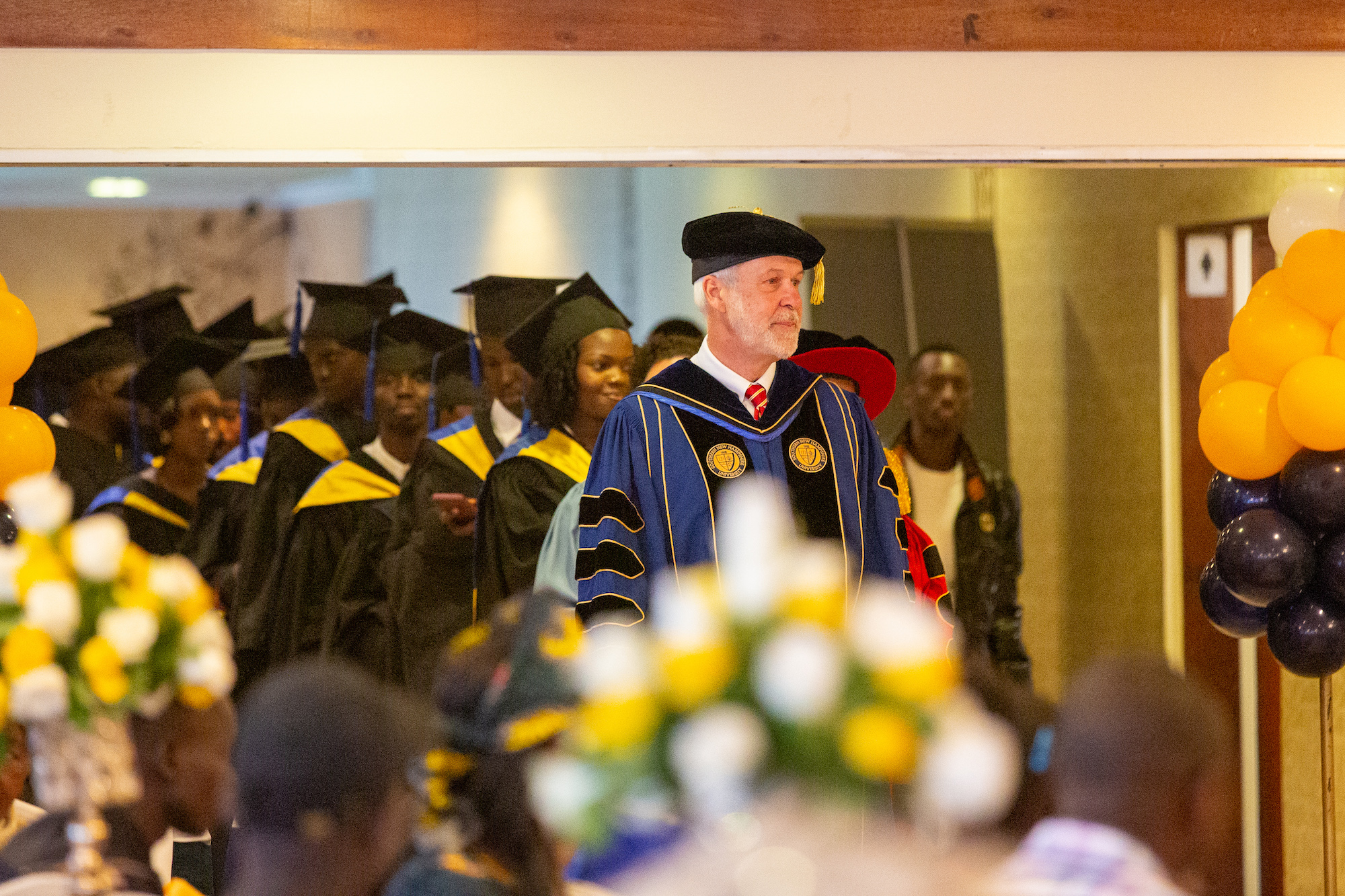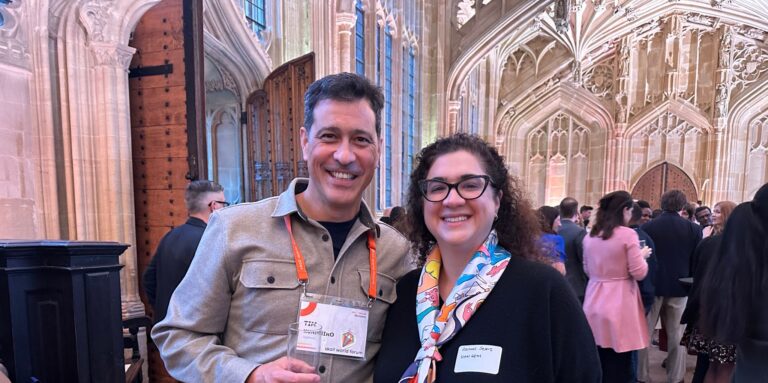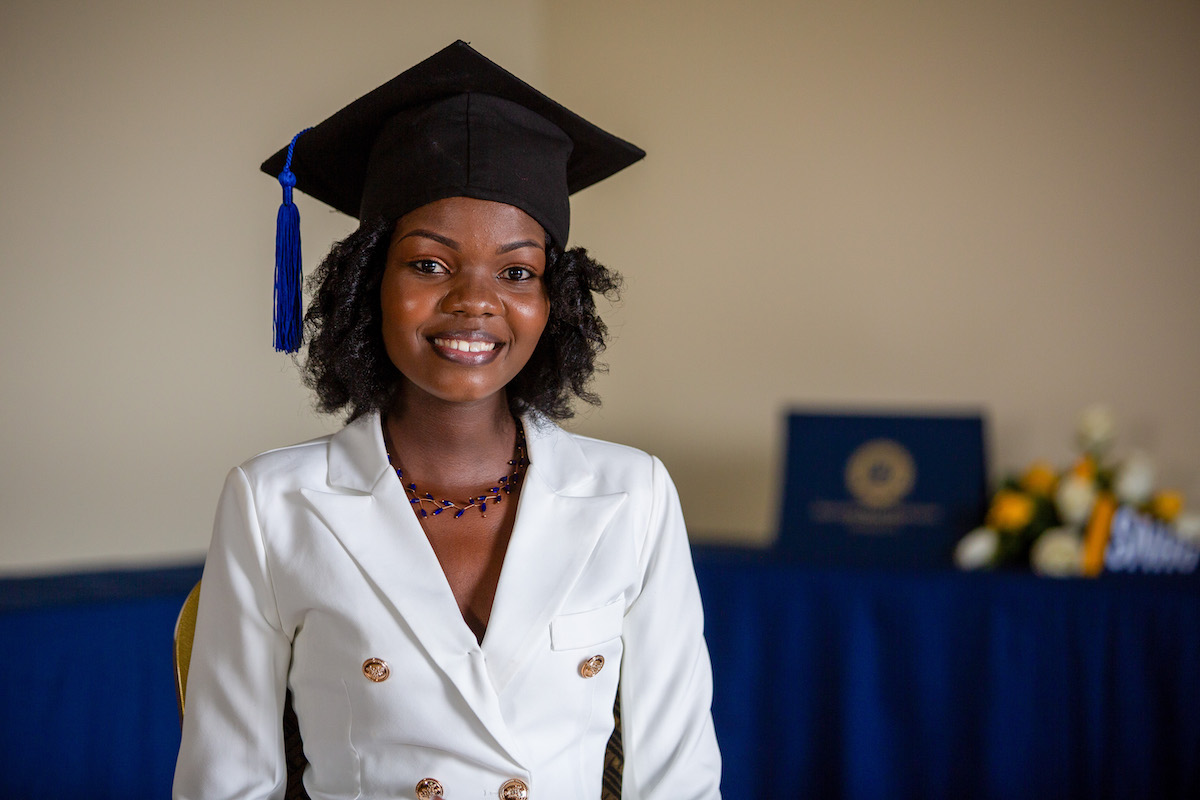I’ve just returned from almost three weeks of travel in Africa, covering four countries — Rwanda, South Africa, Malawi, and Namibia. I’ll share my reflections on the first three countries, which were site visits to the camps where we bring SNHU degrees to displaced people. I’ll follow up with a second blog post on our time in Namibia, a family vacation to a place I’ve long wanted to visit. If looking at people’s travel pics is anathema to you, definitely skip the second blog post. I hope you’ll read this one. This post is my attempt to share just a little of what we experienced (a common refrain was “no one back home will really understand what we experienced”) and my own attempt to process.
Through our Global Education Movement (GEM) program, SNHU has launched the most ambitious attempt to bring full degree programs to displaced people (I have committed to rarely using the word “refugee”) in Rwanda, South Africa, Kenya, Malawi, and Lebanon, with plans to expand to more sites. We first announced this effort in 2017 and more details can be found here if you do not know about the program. In every location, we work with trusted on-the-ground partners, use rigorous assessment practices to ensure quality and standards, and work around delivery challenges most institutions never have to think about. All the credit goes to the unstoppable GEM team, led by Chrystina Russell.
The plight of displaced people, especially as reported by the media, sensibly focuses on the misery, ill-treatment, and suffering of the 65 million people either forced to flee their homeland or internally displaced within their own countries. The danger is that the narrative of victimhood crowds out all else, the courage, creativity, humor, intelligence, love, hopes, and dreams that we found in abundance everywhere we visited. These qualities were vividly on display the evening we spent in a Cape Town gallery, where our students’ talents were showcased. In song, painting, craft, poetry, and storytelling, they powerfully asserted their humanity and they shared their ample gifts.
It was a night when they united as a group of SNHU students, as people who had suffered too much, and found joy in their camaraderie, and in their shared sense of accomplishment–they had completed a college degree; we had just attended their graduation ceremonies–our first graduates in South Africa and Malawi.
I think they were honored that we were there, but we wanted our presence to be on equal footing, which demanded a kind of mutuality, an equal sharing. I’d like to pretend we had equal talent (or even any talent) as we took the stage and did a pretty painful version of Journey’s “Don’t Stop Believing.” But more importantly, the students loved it, singing along, clapping, and laughing.
In singing, being goofy (see the Trustee air guitar solo in the video), laughing — being vulnerable — we were, as them, simply fellow human beings reveling in each other’s company. I don’t want to overstate it or speak for others, but those moments were a highlight of the trip.
We saw creative talent that night, but throughout the trip we also saw intellectual prowess, evidence of genius, entrepreneurship, business savvy, and innovation.
In Kigali, one of our alumna has started the She Can Code program for women, and three of the students shared their projects.

David, a current student also in Rwanda, is working on a startup that will recycle waste plastic to make paving stones, and has his first prototypes completed.

In Dzaleka Camp in Malawi, we visited the TakenoLab, where young displaced people are learning coding skills and building really impressive mobile apps, with little actual connectivity of their own.
Remy, the founder of the program, fled his native Burundi with his older brother when his mother and father were killed in political fighting. He taught himself to code on an aging phone, with no classes or assistance. He started his school, outgrew the original space, and has worked around limited connectivity, regular power outages, and some combination of blackboards and secondhand laptops to develop a growing cadre of talented young programmers.

Remy has set out to create a new generation of expert coders within the camp, has his students build real-world mobile apps, and created special cohorts for women. And he has done it with mind boggling constraints.

I asked him what he could do with actual connectivity and he paused and said, “It would be magic.”
Remy receives far more interest from far more students than he can currently serve in his limited space, so when two current and one former Trustee committed to building a new building in the camp to house his program (and other incubator programming) and bring more bandwidth to the building, he was almost speechless.
They also committed to funding an amazing arts program that serves over 500 young people, developed and run by Roger, another SNHU student. In both cases, a combination of what we can do — education and support — empowers our students to address the challenges that face them. That was a theme throughout our time —a desire for tools, a little support, and a chance to solve their problems on their own.
That theme of pride and self-efficacy was also evident when students invited us into their homes at Dzaleka. In these humble spaces, our students took great pride in pointing out improvements they have made, furniture they managed to purchase, and the interior designs they create.

The women who invited us in are taking care of children, cooking meals, sometimes working, and then late in the evening, after everyone is asleep, they get out their laptops and do their SNHU work, often perched on the side of a mattress on the floor where children are asleep.

We took this trip so Trustees, senior leadership, supporters, and students could see the work firsthand, spend time with our students, and appreciate the impact the program is having on people who have lived through what is often unimaginable. Almost everyone said that it would take time to process what they had experienced. The learning was deep, the conversations powerful, and the emotional impact bordered on the profound.
Fundamentally, our SNHU students in the camps are like many of our online students, even as the circumstances of their lives are so much more limited. This fact was evidenced by the four American students on the trip who immediately connected with their African peers. Sam, Jessica, Diana, and Dan shared their perspective, enriched the larger group, and brought energy and enthusiasm to the journey. Everywhere they went, they formed bonds with their fellow students; it was terrific to have them.
The reactions of the American visitors?
- “This trip has changed my life.”
- “I’ll never complain again.”
- “These students inspire me.”
- “I can’t remember the last time I cried this much — in sadness and in joy.”

Like so many of the students who walk across the stage at the arena every May, our students in the GEM program are inspiring. They may be, in many ways, the most impressive students in American higher education today. When we arrived at Dzaleka, for example, a gospel choir welcomed us with this beautiful song they had written.
A trip like this both breaks and breaks open the heart at the same time, a soul expanding experience (however you define that word) and I won’t reduce it to a list of highlights. What I want to do instead is hold on to whatever it was for as long as I can, because in the time we spent in Africa, especially with our students, I like to think we lived with realities that artists and poets (something about writers and filmmakers feels a bit exploitative) dream of capturing and rarely realize. The realities of human experience writ large and complex and deep.



